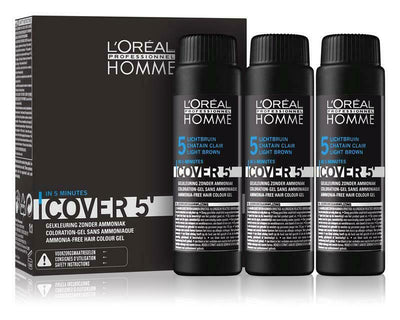Common Mistakes To Avoid When Cleaning Your Hair Brushes
Hair brushes are an essential tool for maintaining healthy and beautiful hair. They help to remove dirt, debris, and product buildup, and they can also help to stimulate the scalp and promote hair growth. However, it's important to clean your hair brushes regularly to prevent them from becoming a breeding ground for bacteria and other harmful microorganisms. A dirty hairbrush can lead to bad odors on the brush itself which can transfer to your hair. Worse, it can also cause hair and scalp problems like dandruff, greasy hair, or even a bacterial infection.
“But,” you ask, “why does my brush still smell bad and leave residue on my hair after I clean it?” Well, that might be because you’re not cleaning it the right way (or not cleaning it enough). Here are some common mistakes to avoid when cleaning your hair brushes.
- Not cleaning your hair brushes often enough.
You should clean your hair brushes at least once a week, or more often if you use them frequently or have a lot of hair. This will help to remove any buildup of dirt, debris, and product residue. If you don't clean your hair brushes often enough, this buildup can lead to bacteria and other microorganisms growing on the bristles. This can then transfer to your hair and scalp, which can cause scalp infections, hair loss, and other problems.
- Using harsh cleaning products.
Avoid using harsh cleaning products, such as bleach or ammonia, on your hair brushes. These products can damage the bristles and make your hair brushes less effective. They can also irritate your scalp and skin. Instead, use a mild soap or shampoo to clean your hair brushes. Be especially wary about using harsh cleaning products on cushioned paddle brushes as some of the liquid you use when cleaning tends to get stuck inside which can cause molds.
- Soaking your hair brushes in water.
Soaking your hair brushes in water can damage the wood and bristles. Instead, use a damp cloth to clean your hair brushes. This will help to remove any dirt or debris without damaging the brush. Even a wet hair brush isn’t meant to be soaked completely in water and exposed to liquids for a long period of time.
- Not drying your hair brushes completely.
It's important to dry your hair brushes completely after cleaning them to prevent mold and mildew growth. Mold and mildew can cause allergic reactions and respiratory problems. To dry your hair brushes, place them on a clean towel in a well-ventilated area.
- Sharing your hair brushes with others.
Sharing your hair brushes with others can spread bacteria and other harmful microorganisms. It's best to have your own hair brushes and avoid sharing them with others. This will help to prevent the spread of scalp infections, hair loss, and other problems.
Need a new hairbrush? Head over to Hairsense.ca and choose from a wide variety of hairbrushes and other hair tools that can help you get your best hair look ever!








